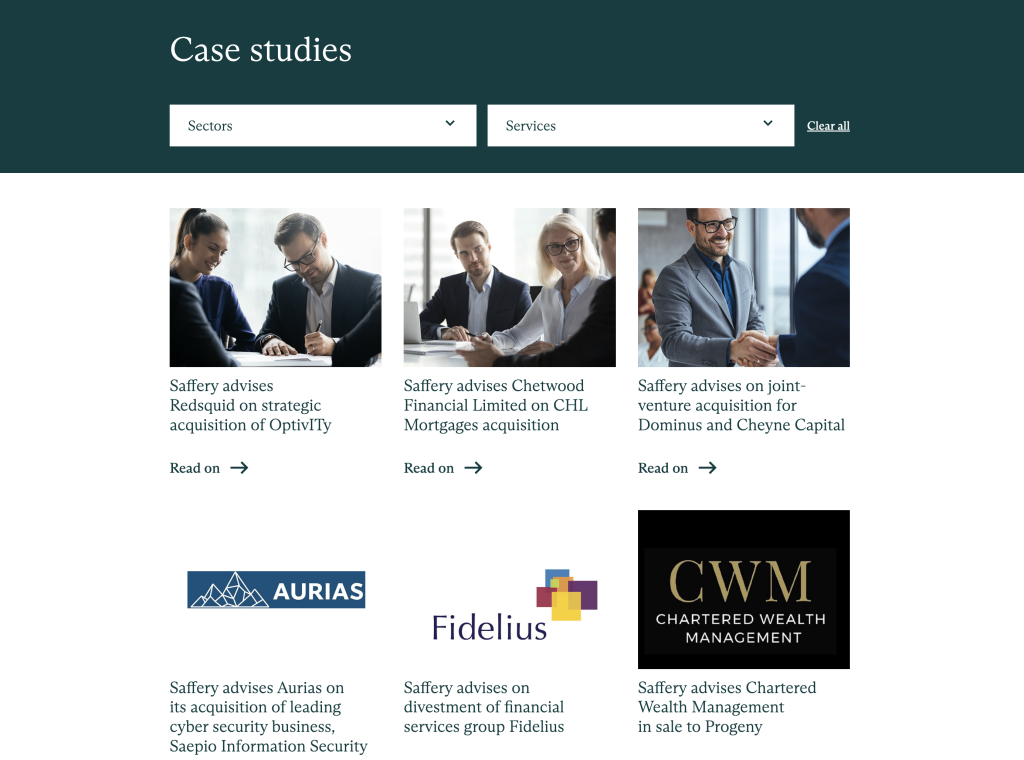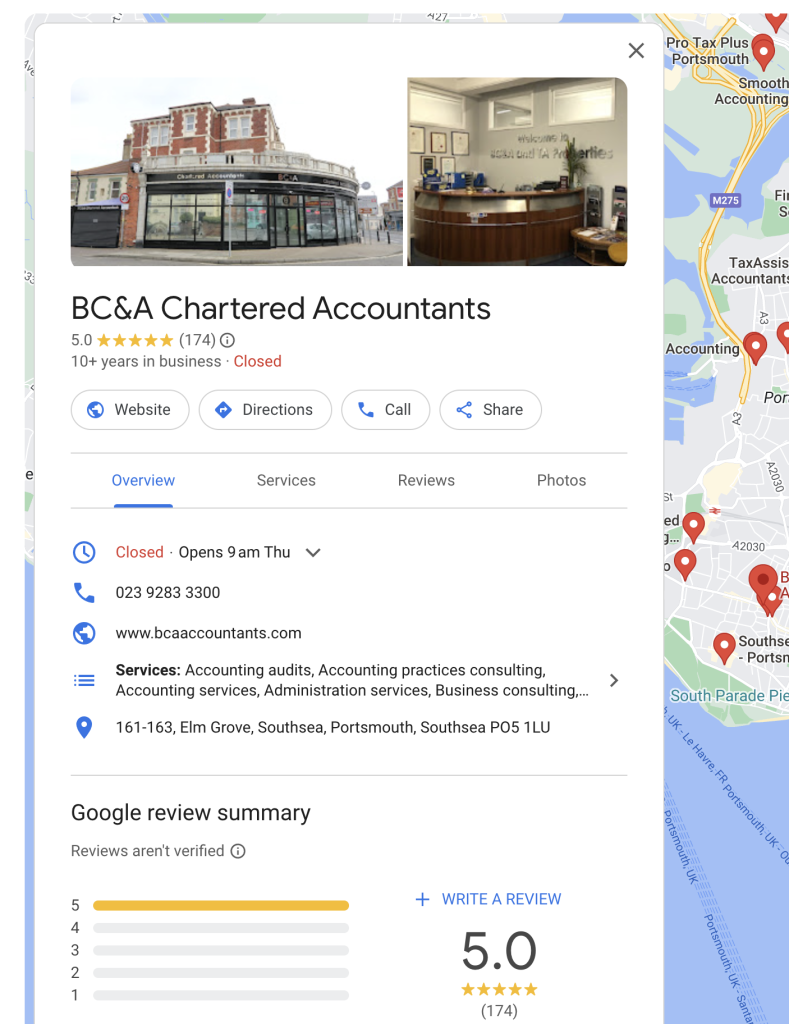You’ll need more than just accounting skills to grow an accounting firm in today’s competitive landscape. Growth is influenced by how a business is marketed and how client retention is managed.
This is true for both small firms and larger operations – the key to growth lies in defining your ideal client base, making your client journey as streamlined and effective as possible and seeking new opportunities to attract new leads.
In this comprehensive guide, we’ll give you the ultimate framework for growing your accounting firm – covering everything from client-centric strategies to scalable growth tactics.
Thriving in today’s competitive landscape
The accounting industry has become increasingly competitive, particularly in the online space. With advancements in technology and the rise of digital marketing, accounting firms of all sizes are vying for visibility and client acquisition in a crowded market. Understanding this landscape is crucial for any firm looking to grow.
The competition for online visibility is fierce. 75% of users never scroll past the first page of search results. For accounting firms, this means that achieving a high ranking on search engines like Google is critical to attracting new clients. However, with over 1.8 billion websites on the internet as of 2024, standing out requires a strategic and well-executed SEO plan.
But while an SEO strategy is key for standing out in search engine results, there are plenty of other routes to explore to not only build upon existing client relationships but attract new potential clients too.
In this competitive environment, accounting firms must leverage every tool at their disposal to stand out. A strong online presence, effective marketing strategies and a focus on client needs are more important than ever in driving growth.
Define your accounting firm’s positioning
Before diving into specific tactics, it’s essential to establish a robust growth strategy for your accounting firm. But first, you need to define your overall business strategy.
One of the best ways to do this is by creating a business plan or revisiting your existing plan to get reacquainted with the direction of your accounting firm.
🔍 Market analysis
Start by analysing the current market conditions. Understand the demand for accounting services in your area, identify key competitors and evaluate the services they offer.
This will help you identify gaps in the market that your accounting firm can fill and highlight opportunities for differentiation.
🌟 Differentiate your services
Leading on from our first point, your service offerings need to stand out in this competitive market. Think about what your accounting firm does differently to competitors and how you can package up your services to go above and beyond for your clients.
You could even serve a specific niche, like solopreneurs, cryptocurrency, law or property – like Provester.co.uk…

As well as the services you offer to existing clients, think about new services you might be able to launch to attract clients as well. But it isn’t just about the services you provide, but how you provide them.
Think about how big brands deliver excellent customer service – whether you create an exceptional customer experience or utilise advanced technology for a streamlined process, standing out isn’t done just by the services provided. Plus, your differentiation strategy will serve as a key selling point in your marketing efforts (a little more on that later).
🎯 Set clear goals
Growth can mean different things to different firms. Define what growth looks like for your business. Before you start marketing strategies in place fully for achieving your goals, think about what you would like to achieve for your accounting practice. What does a successful firm look like to you?
Is it increasing your client base, expanding your services or entering new markets? Set clear, measurable goals that align with your long-term vision. Not sure what goals work for you? Take a look at these 5 digital marketing KPIs your accountancy firm should track.
📈 Develop a financial plan
This is a key area of any successful accounting business’s business plan. Not only is it important to set clear goals and know exactly who you’re targeting, but you need to get a firm grasp of the financials as well.
Achieving growth often requires investment in areas such as marketing, hiring and technology. Create a financial plan that outlines the budget required for your growth initiatives. This plan should include projections for return on investment (ROI) to ensure your growth efforts are financially sustainable.
By establishing a solid foundation with these strategic elements, your firm will be better positioned to implement the specific tactics discussed in the following sections. Now that you have clear growth goals in place, it’s time to focus on one of the most critical aspects of your firm’s success: identifying and targeting your ideal client.
Define your ideal client
Now, some of this will have been covered in your market analysis, but we cannot stress enough how important it is to understand your ideal client. This is a crucial step in growing the visibility of your firm.
You should develop an understanding of who you want to serve and tailor your services to meet their needs. This will also impact your marketing strategies, helping you to attract the right kind of clients.
Think about the problems you are solving, the stress you aim to alleviate for your clients and how you will deliver those service offerings successfully.
Many companies choose to use SWOT analysis – Strengths, Weaknesses, Opportunities and Threats. Consider your current strengths and align them with the type of client you wish to attract. Considering these points will help you build a foundation for your marketing and the direction of your growth.
Create the ultimate client experience
Now that you’ve got the essential aspects of your accounting firm nailed and you know exactly who your target market is – it’s time to work hard on delivering a great client experience.
Strong client relationships can make a huge difference to retainer work as well as referrals which can gain you new clients. But how can you level up your service offering and go beyond what other firms do?
Communication is key
If you’ve ever bought something online that has arrived damaged, incomplete or not quite as described – think about how that business dealt with your query. If they were difficult or unresponsive, it would be highly unlikely that you’d buy from them again.
Instead, ensure your accounting firm provides consistent communication with your client base. Whether it’s keeping them up to date with new services or responding in a timely, professional manner. Nobody wants to be known as the business that never responds or takes ages to reply to a simple question!
Offer more value
Clients are willing to pay more for services they feel offer more value. Think about how you are helping their business run smoother by taking away the headache of their accounts.
This also means uncovering other opportunities to assist them, which not only makes your accounting firm a valuable asset – but also eradicates the need for them to use several businesses.
Offering great value not only gives you a competitive edge, but also helps to build strong client relationships and attract new business through word of mouth.
Dig deeper into the client journey
Understanding how prospective clients will find you is crucial to knowing how best to deliver valuable content to them.
In marketing, the client journey is an important thing to consider. This is the path a potential client will take before they decide to work with your accounting firm. The journey can be broken down into a few simple stages:
Awareness
This is when a potential client first becomes aware of your firm. They may come across your business through various avenues such as searches (via search engine optimisation), social media, word-of-mouth or other marketing efforts.
At this stage, they have a problem they need your firm to solve, but might not understand the services you provide.
If you’re not sure what to share on social media, take a look at these 25 social media ideas for accountants. Not every post needs to be a promotion for your accounting firm, however. The most effective strategies require a combination of short and long-term goals, with measurable results.
While you might know which social media platforms your target audience uses, knowing how to deliver valuable content to them correctly is where the magic happens.
Evaluation
Potential clients will typically evaluate your firm by comparing your services to those of other accounting firms. They might look over your website, read reviews or reach out to you for more information. This is when they will decide whether your firm is the right choice for them.
Think about how you compare and show up compared to your competitors. For example, if a business owner were to land on your LinkedIn page right now vs a competitor’s, would they meet six-month-old posts or regular updates?
Decision
The client will next decide to engage with your firm. This stage involves a series of final negotiations, contract discussions and an agreement on the services you will provide for them. This is the moment they transition from a potential client to a client.
Retention
Once the client has chosen your firm, the journey continues. Retention is crucial and involves keeping a client satisfied with ongoing services, ensuring they come back to you for additional accounting work or advice.
As we talked about above, client relationships are crucial for not only keeping your clients happy, but also securing additional services.
9 key marketing strategies to grow your accounting firm
Many of the steps above involve demonstrating to potential clients that you can provide them with value. Marketing for financial services is a unique landscape that requires specific strategies to demonstrate to your potential clients that your services can improve their financial lives.
Potential clients will need to see clear evidence that your firm can deliver the results they’re looking for. Here are some main areas to focus on:
1. Detailed proposals
When clients reach the decision stage of their journey, you need to provide them with expert, transparent advice. Clearly outline the scope of the work, the value they will receive and how your services will address their specific needs. Doing so will ensure they get a good standard of service and can lead to retention or good reviews!
2. Email marketing
While acquiring new clients is crucial, retaining existing clients is equally important for sustained growth. Email marketing is an effective tool for nurturing long-term relationships with your clients.
Regular newsletters, updates on new services, industry insights and personalised advice can keep your firm top-of-mind. Segment your email lists based on client interests and needs to ensure the content is relevant and valuable to each recipient.
By consistently providing useful information, you can foster loyalty and encourage repeat business, ultimately increasing client retention rates.
3. Showcase expertise

It’s important to show the level of expertise that your accounting firm can provide. For example, you can offer case studies, previous client testimonials and success stories to show how you have helped people in the past. You should display these across your marketing channels.
For those who come across your website through online searches, social proof can make a huge difference. When you display testimonials on your website, as well as other channels, prospective clients will start to trust what you do, leading to more clients and your firm’s growth overall.
4. PPC advertising
Pay-per-click (PPC) advertising can be a powerful tool to drive targeted traffic to your website. Platforms like Google Ads allow you to bid on keywords relevant to your accounting services, ensuring your firm appears at the top of search results when potential clients are looking for specific services.
To maximise ROI, focus on long-tail keywords that reflect the specific needs of your ideal clients, such as “small business tax preparation” or “corporate accounting services.” Regularly monitor and optimise your campaigns by analysing performance data, adjusting bids and refining ad copy to improve conversion rates and reduce costs.
5. Participate in industry events and webinars
Building your firm’s brand presence doesn’t have to be limited to online marketing. Participating in industry events, conferences and webinars can significantly boost your visibility and credibility. Hosting or speaking at webinars on topics of interest to your target audience can position your firm as a thought leader in the accounting space.
Additionally, networking at these events can lead to valuable partnerships, referrals and direct client acquisition. Follow up with attendees via email or LinkedIn to maintain the connection and explore opportunities for collaboration or service provision.
6. Content marketing and SEO

Many firms leverage content and SEO to market their services, these elements play a key role in accounting firm growth strategies. This might include blog posts, social media posts and videos that address common client concerns. Xero for example uses Instagram as a platform to share valuable content for small businesses, with a combination of small business advice, humour and interviews.
The combination of content marketing and SEO attracts potential clients and enhances your firm’s authority during the evaluation stage of their journey. And of course, it helps to create a lasting reputation.
As well as showcasing to potential clients that you know the accounting industry inside out, content marketing will also benefit your organic SEO. For those looking for insights into accounting or advice on streamlining their business, offering this type of content will be priceless.
7. Lead generation

Your website is often the first point of contact between your firm and prospective clients, making it a critical component of your marketing strategy. Ensure your website is optimised not just for SEO but also for lead generation.
This includes having clear calls-to-action (CTAs) on every page, such as “Request a Consultation” or “Download Our Free Guide.” Consider adding live chat functionality to provide immediate responses to inquiries and capture visitor information through gated content like whitepapers or eBooks. By making it easy for visitors to engage and leave their contact information, you can convert more traffic into qualified leads.
8. Build a bank of testimonials

To expand on our earlier mention of testimonials – you should know that these are among the strongest tools you have to grow your accounting firm. Authentic endorsements from happy clients can influence potential clients as they try to decide if your business is right for them.
You can collect testimonials by asking at the right time – after you’ve delivered a successful service or achieved a significant milestone for your client. This is when they’re most likely to offer positive feedback.
Remember to make the process easy for them, offering them a short questionnaire or even a draft testimonial and encourage your clients to be specific so that other potential clients can understand what it’s like to seek help from your firm.
If you’re worried about your firm’s reputation, read our online reputation management guide for accountants.
9. Search engine optimisation
Why SEO is important (and key SEO strategies you can implement)
In our modern, digital world, traditional marketing methods are not the only way to gain traction. SEO (search engine optimisation) is now crucial for marketing, helping to boost your company’s online visibility, particularly on Google. This increased visibility will attract potential clients searching for accounting services online.
Here’s how accounting firms maximise their SEO efforts to show up online when a business needs them most. Modern businesses, including accounting firms, use SEO to optimise content for keywords – this helps to raise your standing on Google Index and make your business appear higher and more frequently on search engines. You can even take advantage of ChatGPT for guidance on topics, keywords and new SEO opportunities.
Here are some of the strategies companies use to improve their SEO:
Create high-quality content

Google rewards websites that regularly update and expand their content. Creating a blog where you consistently publish articles, guides and updates relevant to your industry can help keep your website fresh and informative.
Not only does this provide more opportunities to rank for relevant keywords, but it also signals to search engines that your site is active and valuable to users. Consider creating cornerstone content – comprehensive, high-quality articles that serve as the foundation of your website’s content strategy – and regularly update these pieces to reflect the latest industry trends and information.
Ensure your website is mobile-friendly
With the increasing use of smartphones and tablets, having a mobile-friendly website is essential for SEO. Google’s mobile-first indexing means that the search engine primarily uses the mobile version of your site for ranking and indexing.
Ensure your website is responsive, meaning it automatically adjusts to fit any screen size, providing an optimal user experience across all devices. A mobile-friendly site not only improves your SEO rankings but also enhances user experience, reducing bounce rates and increasing the time visitors spend on your site.
Backlinks
Backlinks (inbound links from other external websites) can help to boost search engine rankings. Most companies achieve this by guest blogging, collaborating with partners or being featured in online publications.
Improve site speed
Site speed is a crucial factor in both user experience and SEO. Google considers page speed as one of its ranking factors, meaning a slow website can negatively impact your position in search results.
Tools like Google PageSpeed Insights can help you analyse your site’s performance and identify areas for improvement. Common strategies to increase site speed include compressing images, leveraging browser caching, minimising JavaScript and using Content Delivery Networks (CDNs).
A faster website improves your chances of ranking higher on search engines and ensures visitors have a smooth and engaging experience.
Local SEO
For an accounting firm, there’s a good chance that many of your clients will be local. Optimising your local SEO is crucial for attracting clients in your area. Ensure your business information – name, address and phone number (NAP) – is consistent across online directories and platforms to boost your local search rankings.
Claim and optimise your Google Business profile by adding accurate details, high-quality images and regularly updating it with posts and reviews. Also, incorporate local keywords into your website content and consider creating location-specific landing pages.
These strategies will help your accounting firm stand out in local searches, making it easier for nearby clients to find and choose your services.
Do you want to grow your accounting firm?
No matter the size of your firm, creating growth can be difficult. At Rapport Digital, we develop, launch and manage comprehensive digital marketing strategies. From SEO and content marketing to social media management and PPC advertising, our skilled team knows how to make a strategy tailored to you and your clients.
To learn more about how Rapport Digital can help grow your accountancy firm, contact us today. We’ll explain more about our services and show how we can create growth.

